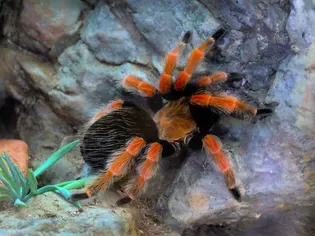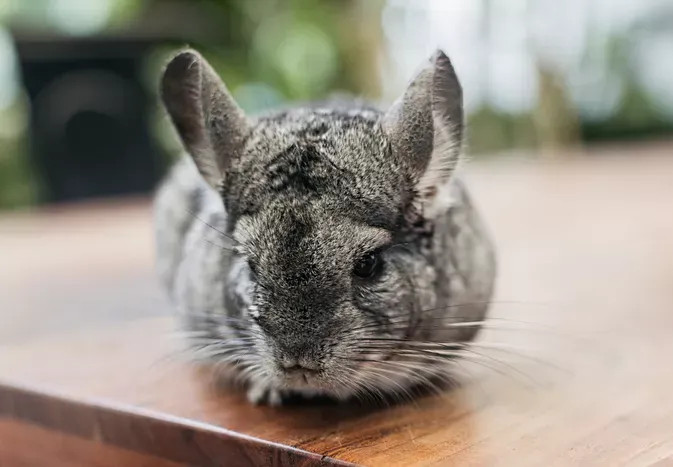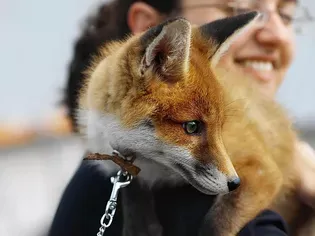Should You Keep a Patagonian Cavy (Mara) as a Pet?
Updated on 05/27/24

Exploring the Enigmatic Patagonian Cavy (Mara): A Journey into the Realm of Domestication
The Patagonian cavy, commonly known as the mara, is an intriguing rodent native to the vast grasslands of South America. With its captivating appearance and endearing behaviors, it's no wonder that many are drawn to the idea of keeping this exotic creature as a pet. However, embarking on this journey requires careful consideration and a comprehensive understanding of their unique needs and characteristics. In this comprehensive guide, we delve into the intricate world of the Patagonian cavy, exploring its suitability as a companion animal and providing invaluable insights for potential owners.
Unveiling the Captivating Nature of the Patagonian Cavy
Maras are undeniably charismatic creatures that have evolved to thrive in the unforgiving landscapes of Patagonia. Their elongated, slender bodies, reaching lengths of up to 30 inches, are adorned with a thick, shaggy coat that provides insulation against the harsh elements. This distinctive fur comes in a range of colors, from silvery gray to reddish-brown, blending seamlessly with the surrounding vegetation.
Maras possess an exceptional ability to adapt to their environment. Their long, powerful legs enable them to cover vast distances with remarkable speed, while their sharp claws provide stability on uneven terrain. These fascinating rodents are also highly social animals, living in family groups called "herds" that can number up to 30 individuals.
Exploring the Benefits of Mara Companionship
For those seeking an unconventional and engaging companion, the Patagonian cavy offers a host of unique advantages:
* Intelligent and Inquisitive: Maras are surprisingly intelligent and curious animals, eager to explore their surroundings and interact with their human caretakers. They can develop strong bonds with their owners, responding to their presence with affectionate gestures and playful behaviors.
* Low-Maintenance: Compared to other exotic pets, maras are relatively low-maintenance, requiring a moderate amount of care and attention. They are herbivores, with a diet primarily consisting of grasses and leafy greens, which can be easily obtained and supplemented with commercial pellets.
* Adaptable and Hardy: Maras are naturally hardy and adaptable animals, capable of withstanding a wide range of temperatures and environments. This adaptability makes them suitable for a variety of climates and housing options.
Addressing the Challenges of Mara Ownership
While maras can be rewarding companions, potential owners must be aware of the challenges associated with their care:
* Enclosure Requirements: Maras require a spacious enclosure with ample room to roam and explore. They are highly active animals that need plenty of exercise to maintain their physical and mental well-being.
* Socialization Needs: As social animals, maras thrive in the company of their own kind. Keeping them as solitary pets can lead to loneliness and behavioral problems.
* Potential Destructiveness: Maras have a natural inclination to gnaw and chew. Providing them with plenty of chew toys and appropriate enrichment activities is essential to prevent damage to furniture and other belongings.
Ensuring a Fulfilling Life for Your Patagonian Cavy
If you decide that a Patagonian cavy is the right pet for you, it is crucial to provide them with a stimulating and fulfilling environment. Here are some essential care tips:
* Nutrition: Maras are herbivores, and their diet should primarily consist of grasses, hay, and leafy greens. They also require a daily supplement of commercial pellets to ensure they receive all the necessary nutrients.
* Housing: Maras need a spacious enclosure that mimics their natural habitat. The enclosure should include a sheltered area for sleeping, ample room to run and play, and a water source.
* Socialization: Maras are highly social animals and should be kept in pairs or groups. Providing them with companionship will help prevent boredom and improve their overall well-being.
* Exercise: Maras are active animals that require plenty of exercise to stay healthy. A large enclosure with plenty of room to roam and explore is essential.
* Health Care: Maras are generally hardy animals, but regular veterinary checkups are important to ensure their health and well-being. Consult with a veterinarian experienced in exotic pet care for proper vaccinations, parasite control, and dental care.
A Decision of Commitment and Responsibility
Keeping a Patagonian cavy as a pet is a significant commitment that should not be taken lightly. These animals require specialized care, attention, and a deep understanding of their unique needs. Before bringing a mara into your home, it is essential to carefully consider your lifestyle, living situation, and ability to provide the necessary care for the entire lifespan
Explore More Pets

Exotic Pet Species
Should You Keep a Chimpanzee as a Pet?

Exotic Pet Species
Should You Keep a Raccoon as a Pet?

Exotic Pet Species
How to Care for a Pet Mexican Red-Knee Tarantula

Exotic Pet Species
12 Best Exotic Pets for Apartment Living

Exotic Pet Species
Best Foxes to Keep as Pets

Exotic Pet Species
Should You Keep a Northern Flying Squirrel as a Pet?

Exotic Pet Species
Should You Keep Stick Insect as a Pet?

Exotic Pet Species
Should You Keep a Big Cat as a Pet?
